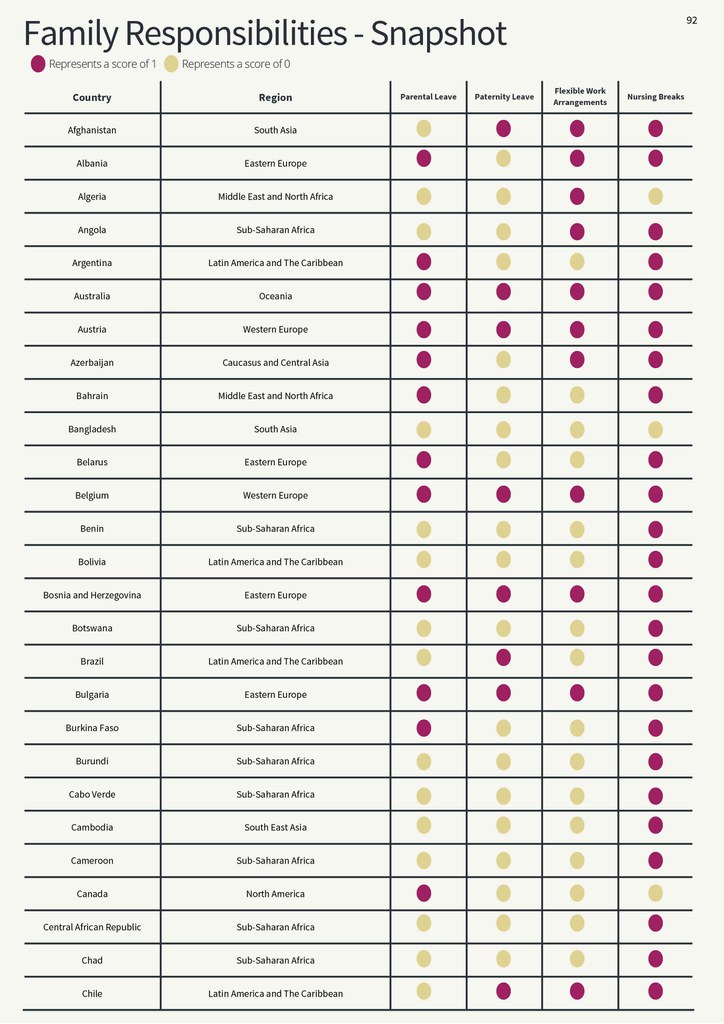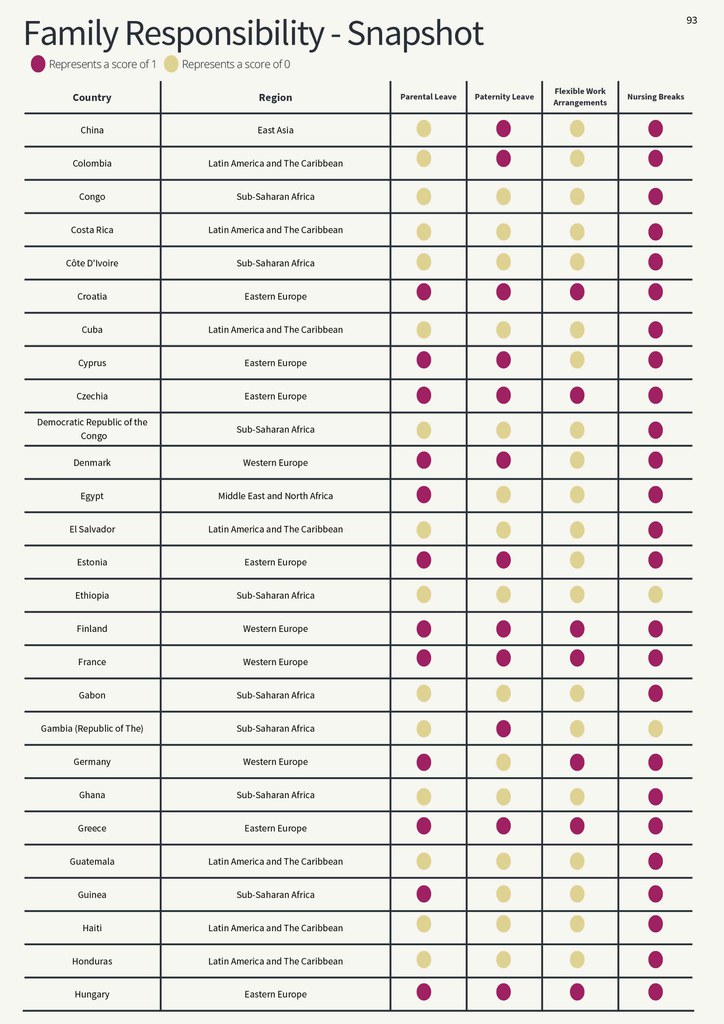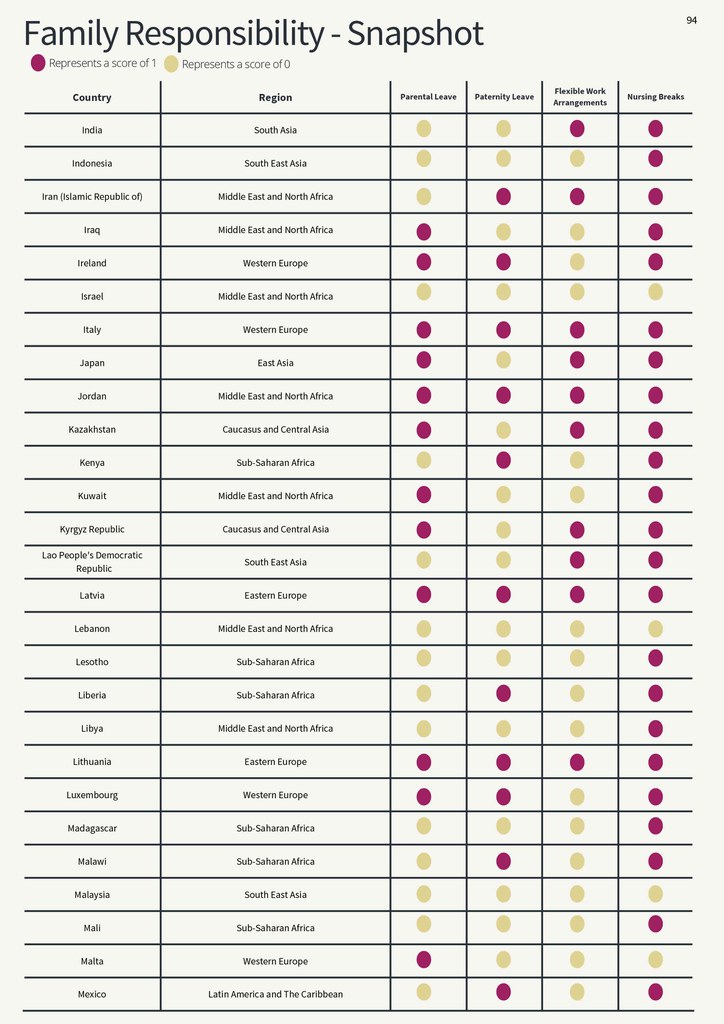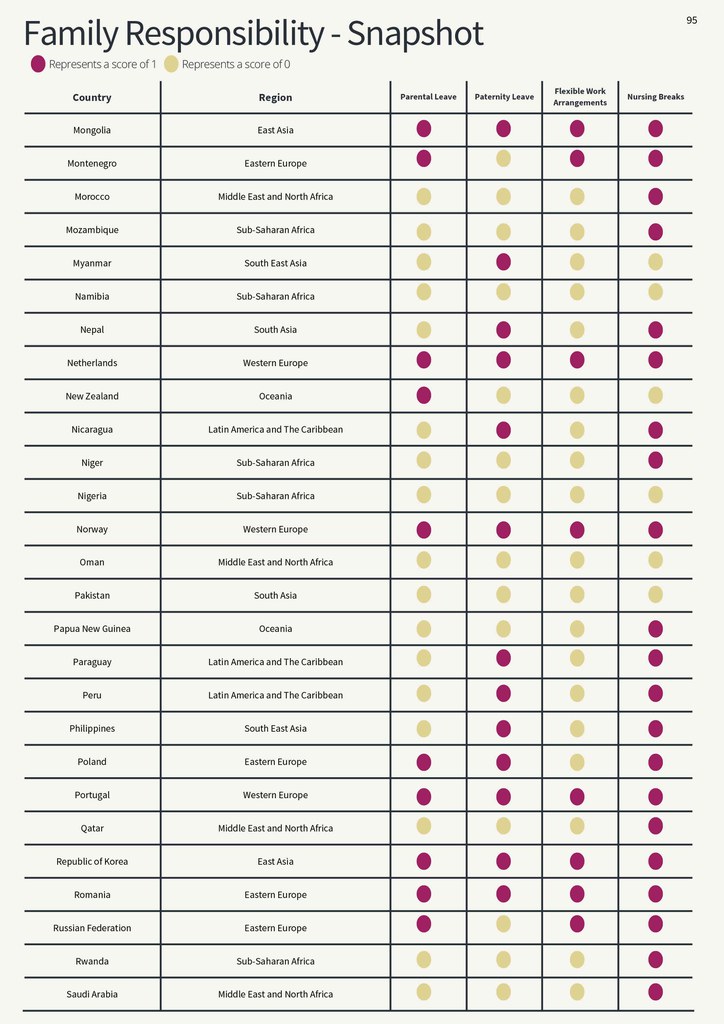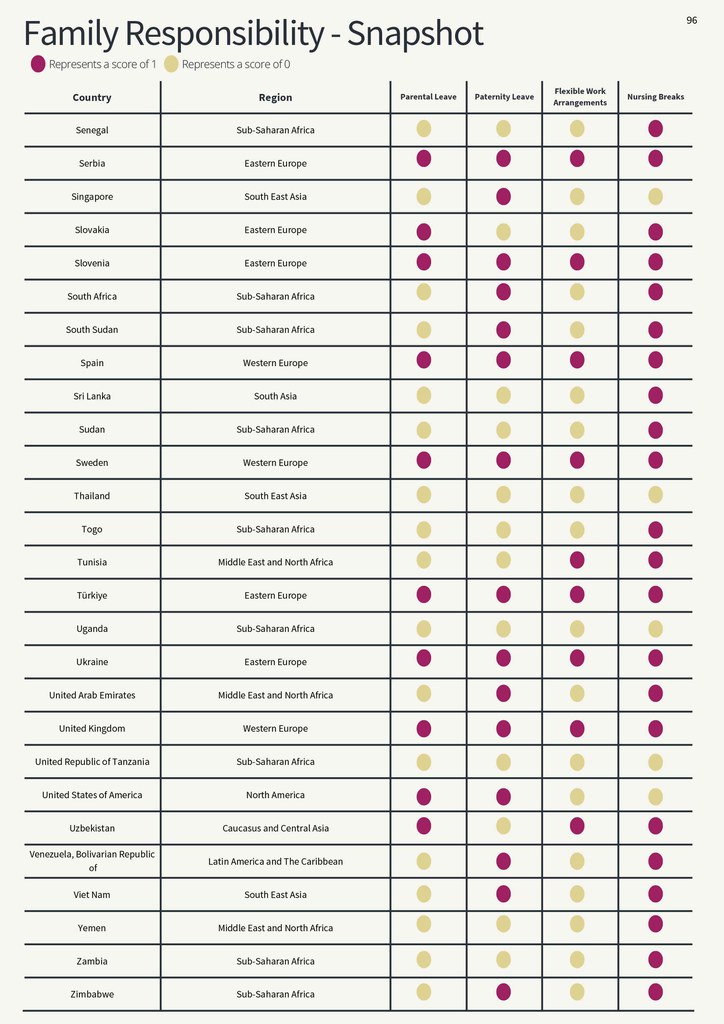Family Responsibilities
Family responsibilities are responsibilities in relation to dependent children and other immediate family members who need care (sick, elder, infirm). The Family Responsibilities indicator measures whether labour legislation ensures that workers get paternity leave, parental leave and flexible work options while tending to their family responsibilities.
4.1 Parental Leave
Does the law require parental leave for parents?
International Regulatory Standard
Paragraph 22 of the Workers with Family Responsibilities Recommendation, 1981 (No. 165) and Paragraph 10 of the Maternity Protection Recommendation, 2000 (No. 191) insist that either parent should have the possibility, within a period immediately following maternity leave, of obtaining leave of absence (parental leave), without relinquishing employment and with rights resulting from employment being safeguarded. The parental leave period, its length, as well as payment of parental benefits and the use and distribution of parental leave between employed parents, should be determined by national laws or regulations or in any manner consistent with the national practice.
Methodology
Whether parental leave is available to parents:
1: Workers have the right to paid or unpaid parental leave of at least four months on exhaustion of paternity and maternity leave. 0: Labour legislation does not provide for the right to paid or unpaid parental leave of four months on exhaustion of paternity and maternity leave.*
56% of the 135 countries have no legal provision for parental leave. Chile, China and Singapore are the only countries to provide less than 4 months of parental leave.
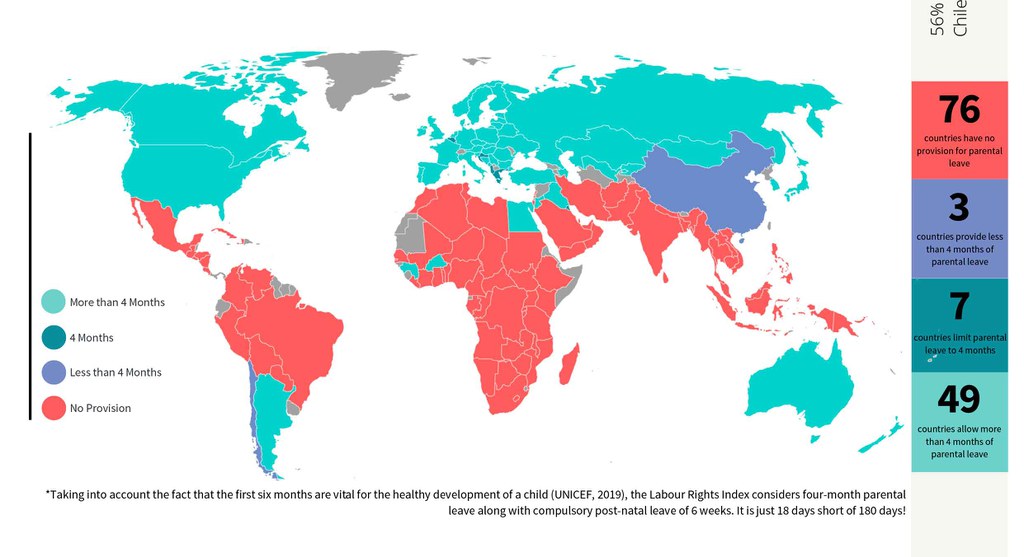
4.2 Paternity Leave
Does the law require at least one week of paid paternity leave for fathers?
International Regulatory Standard
In line with para 42 of the 2009 ILC Resolution Concerning Gender Equality at the Heart of Decent Work, Governments must develop, together with social partners, adequate policies for a better balance of work and family responsibilities for an equal sharing of these responsibilities. Other than parental leave, such policies should include paternity leave, with incentives for men to use them.
Methodology
Whether fathers have the right to take paid paternity leave:
1: Labour legislation requires employers to grant paid paternity leave of at least one week on the birth of a child. Paternity leave might be an employer liability or paid by the social security system or general tax financing.
0: There is no provision for paid paternity leave of at least one week.
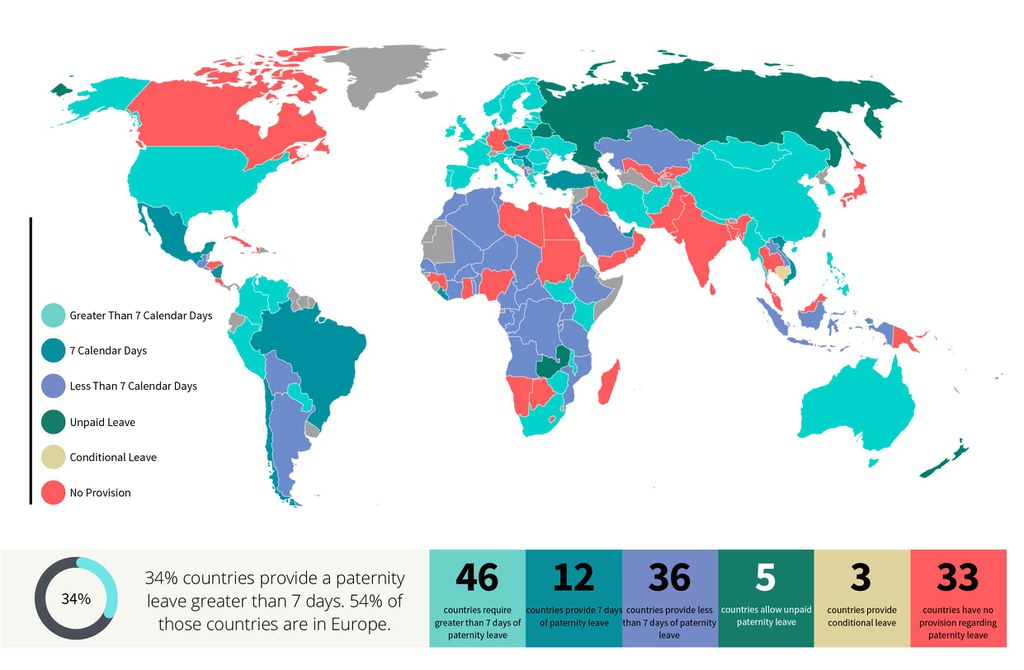
4.3 Flexible Work Arrangements
Does the law require flexible working arrangements for workers with family responsibilities?
International Regulatory Standard
Paragraph 18 of the Workers with Family Responsibilities Recommendation, 1981 (No. 165) suggests that particular attention should be given to general measures for improving working conditions and the quality of working life, including measures aiming at progressive reduction of daily hours of work and of overtime, and more flexible arrangements as regards working schedules, rest periods and holidays, account being taken of the stage of development and the particular needs of the country and of different sectors of activity.
Article 9(2) of the Part-Time Work Convention, 1994 (No. 175) states that measures should include the review of laws and regulations that may prevent or discourage recourse to or acceptance of part-time work. Special attention, in employment policies, to the needs and preferences of specific groups such as the unemployed, workers with family responsibilities, older workers, workers with disabilities and workers undergoing education or training needs to be there.
Methodology
Whether flexible working arrangements are available to workers with family responsibilities:
1: The labour legislation allows flexible work arrangements for workers with family responsibilities.
0: The labour legislation does not provide access to part-time work or flexible work for workers with family responsibilities.
67% of the 135 countries do not provide access to part-time work or flexible work for workers with family responsibilities.
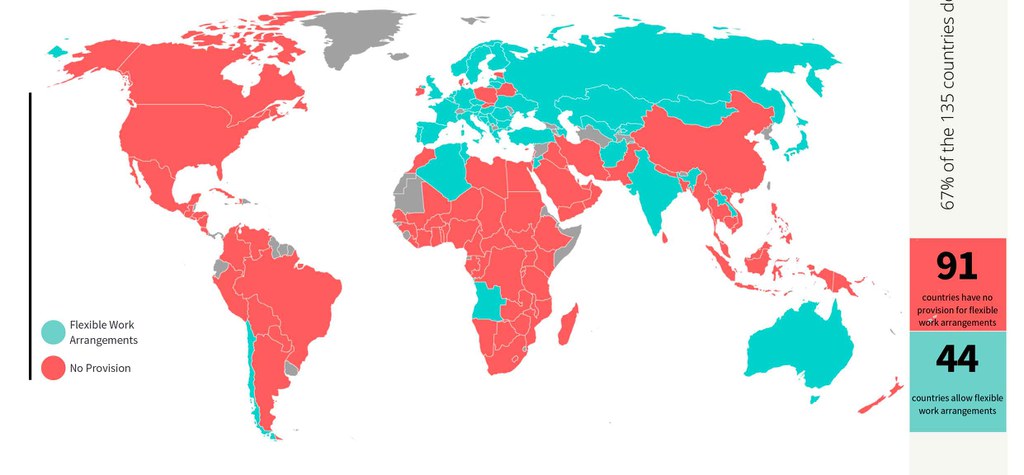
4.4 Paid Nursing Breaks
Does the law require paid nursing breaks?
International Regulatory Standard
Article 10 of the Maternity Protection Convention, 2000 (No. 183) requires that a woman worker must be provided with the right to one or more daily breaks or a daily reduction of hours of work to breastfeed her child. The period during which nursing breaks or the reduction of daily hours of work are allowed, their number, the duration of nursing breaks and the procedures for reducing daily hours of work shall be determined by national law and practice.
These breaks or the reduction of daily work hours shall be counted as working time and remunerated accordingly.
Methodology
Whether there are paid nursing breaks:
1: The labour legislation requires the provision of paid nursing breaks until the infant is six months old.
These nursing breaks can either be during the working day or can also take the form of reduced working hours.
0: Labour legislation does not require employers to grant fully paid nursing breaks to workers until the infant is six months old.
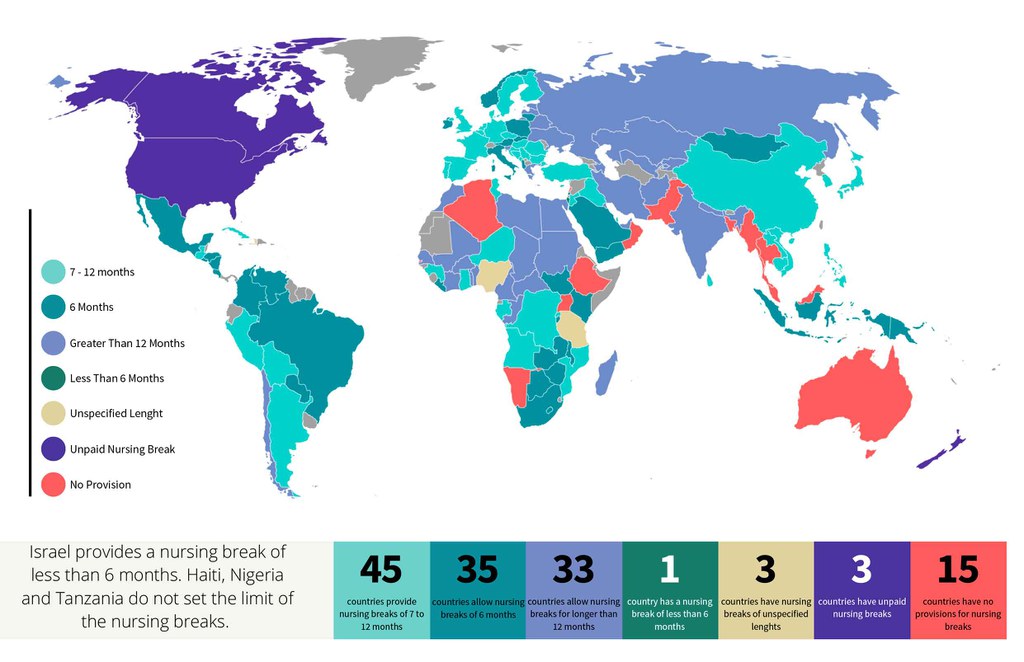
Family Responsibilities - Snapshot
